Time-travel back to the summer of 2011 when Welsh rugby was once again demonstrating its matchless ability in the art of navel gazing.
The source of the introspection this time was a 92-0 defeat at the hands of New Zealand in the U20 World Championship. Some might have said the Welsh youngsters were fortunate to get nil that day in Rovigo. The mild surprise was some newspapers didn’t mistakenly include the score with their cricket details.
The future looked bleak and plenty were prepared to say so.
Two months earlier, the senior Wales team had been soundly spanked by France in the final round of the Six Nations, leaving them a disappointing fourth in the table. There had been in-house controversy during the campaign in the shape of a confrontation between defence coach Shaun Edwards and sports scientist Fergus Connolly. According to Connolly, a row over a song ended with Edwards head-butting him. Edwards denied the claim, but both were suspended and fined £500 apiece.
In the same week as Wales U20s were being routed, pictures emerged of Wales scrum-half Mike Phillips being pinned to the floor outside a McDonald’s restaurant in Cardiff city centre. The chap doing the early-hours pinning was a doorman who looked as if he just might be the reigning Splott & District all-in wrestling champion. It wasn’t an image guaranteed to engender a wildly positive response from the Wales management, notwithstanding that Phillips later insisted the shots didn’t tell the full story.
The regions? No silverware there.
To outsider observers, then, Welsh rugby might have seemed as healthy as an exercise-averse fast-food enthusiast with a 60-a-day Woodbine habit.
Yet fast-forward to October and the Wales squad under Warren Gatland returned from the World Cup amid bouquets from Reykjavik to Rotorua, with a young group reaching the semi-finals.
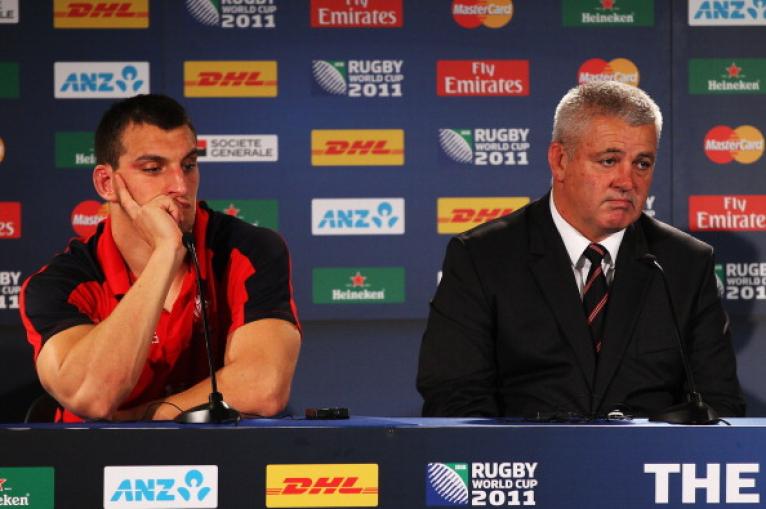
It wasn’t just about their performances. The players were acclaimed for the way they conducted themselves.
Could they have won the whole shooting match 12 years ago? Very definitely, with eventual victors New Zealand missing the injured Dan Carter and weighed down by tension. But the Welsh dream ended amid injury and controversy against France. Still, theirs had been some journey, one that almost ended with Sam Warburton and co shocking the world. Here’s how it unfolded.
Spala – mere mention of the place is still likely to send chills down the spines of Wales rugby players who visited the village as part of their World Cup preparations.
Warburton called the training “savage”.
Gatland’s squad were in a swimming pool at six o’clock every morning, ready for a punishing training regime underpinned by cryotherapy sessions that saw players endure temperatures of -120 degrees Celsius twice a day. The idea was for the fridges to enable all concerned to recover rapidly from previous sessions and so pack in more training. “Five training sessions a day – it was like a boot camp,” one player said.
Physically and mentally the ice chambers were deemed to have worked. Welsh players looked a million dollars and felt the same. Gatland told them no other team was training as hard as they were and they believed him. It’s difficult to imagine how any other group could have worked as hard as Wales did in that interminable close season of 2011. They even fitted in a session at 4:30am on the final day before leaving for their early-morning flight home.
It is the way it is, it is never going to change. But that’s why you have to get yourself in the best shape of your life.
“What you have to understand is that the World Cup comes at the end of a southern hemisphere season, so their players are battle hardened,” says Edwards.
“We in the north have to somehow try to get to their level and the only way to do that is by being 10-15 percent fitter than we’ve been before.
“It’s about peaking in September and October, which obviously comes with massive challenges for northern sides, who normally play their best rugby at the end of the season when trophies are won.
“It is the way it is, it is never going to change. But that’s why you have to get yourself in the best shape of your life.”
And the cryotherapy rooms? Scott of the Antarctic would have complained. Edwards went in once and could hardly see because it was so cold: “I am quite a claustrophobic person and don’t like being hemmed in, so I can’t say it was the most positive experience. It is normal practice now but back then, we were ahead of the time.”
On his first exposure to the low temperatures, one senior player banged on the door in a desperate attempt to be let out.
Wales had been to hell and back before the campaign even started.
The younger members of the squad had already started turning heads.
They included Warburton, Leigh Halfpenny and George North, players who had come through in the regional era in Wales and were blessed with a cutting-edge approach to their sport. One player noted Warburton’s only vice was a penchant for a bar of chocolate after a game.
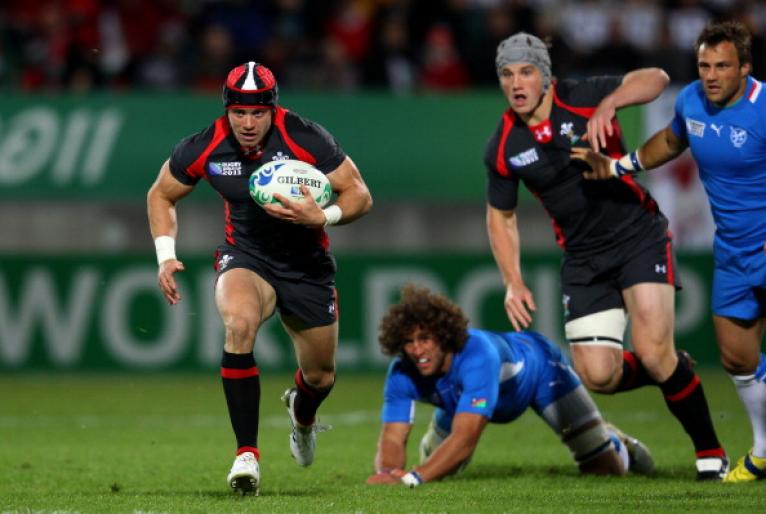
He later explained his ultra-professional outlook by referencing the approach of an athlete from another sport, saying: “Would you see Jess Ennis going out on the p**s a week before the Olympics? No. Playing for Wales was my Olympics.”
A wet and dry chart had been put up in the gym in pre-season, dividing those who’d had an alcoholic drink and those who’d opted for abstinence. By the end, Warburton, Halfpenny, North and Dan Lydiate were among those whose names were still on the ‘dry’ side.
“We were in an era where there had been a lot of Wales boys who’d been around a long time, like me, Gethin Jenkins, Shane Williams, Mike Phillips and Stephen Jones,” remembers Adam Jones, Wales’ scrum anchor all those years ago. “We’d been there for years and on different tours, gone to World Cups and been away with the Lions. Then you had a middle group of guys who were also well-established.
“But we also had younger boys coming through who conducted themselves in a way we hadn’t seen before. They’d been academy players who’d known only rugby. They were very professional and pushed some of the others harder to stay with them. You’d see how Sam and Leigh, to pick two, handled themselves and it was an eye opener. They never knew any different. They never knew some of the stuff I grew up with at Neath, for instance.
“That was a breath of fresh air and you had to get to their standard. It was something Gats pushed. There was a good blend of experienced players, a middle grade and the youngsters – Taulupe Faletau, as well. They were outstanding, like seasoned internationals within a few weeks.”
I remember Frans Steyn coming up to me afterwards and saying: ‘It was over.’
The eye-opening contributions of players such as Warburton, Halfpenny, North, Lydiate, Faletau and Jonathan Davies were to become a feature of the Welsh campaign.
Wales played South Africa first up and could have – perhaps should have – beaten them.
The match was shrouded in controversy when Wayne Barnes chose not to ask for a video review after the flags stayed down as James Hook’s penalty attempt appeared to sail over.
Travelling Wales fans who had come up with a World Cup song, Sam our Captain, sung to the tune of Sloop John B, rapidly penned a fresh verse, not all of which was complimentary to Barnes and not all of which can be reproduced pre-watershed.
Unsurprisingly, no World Rugby official was spotted singing it. Instead, the governing body put out a statement insisting the English official had followed correct protocol.
But it’s fair to say Barnes would have struggled to win any popularity contests in Wales for a while thereafter.
Hook’s view now? “It went over,” he says. “You know as a kicker if a kick is good. That one was high but it went through. I remember South Africa’s full-back Frans Steyn coming up to me and Jinks [Wales kicking coach Neil Jenkins] afterwards and saying: ‘It was over.’
“But that’s the way it goes.
“It wasn’t awarded and you just move on.”
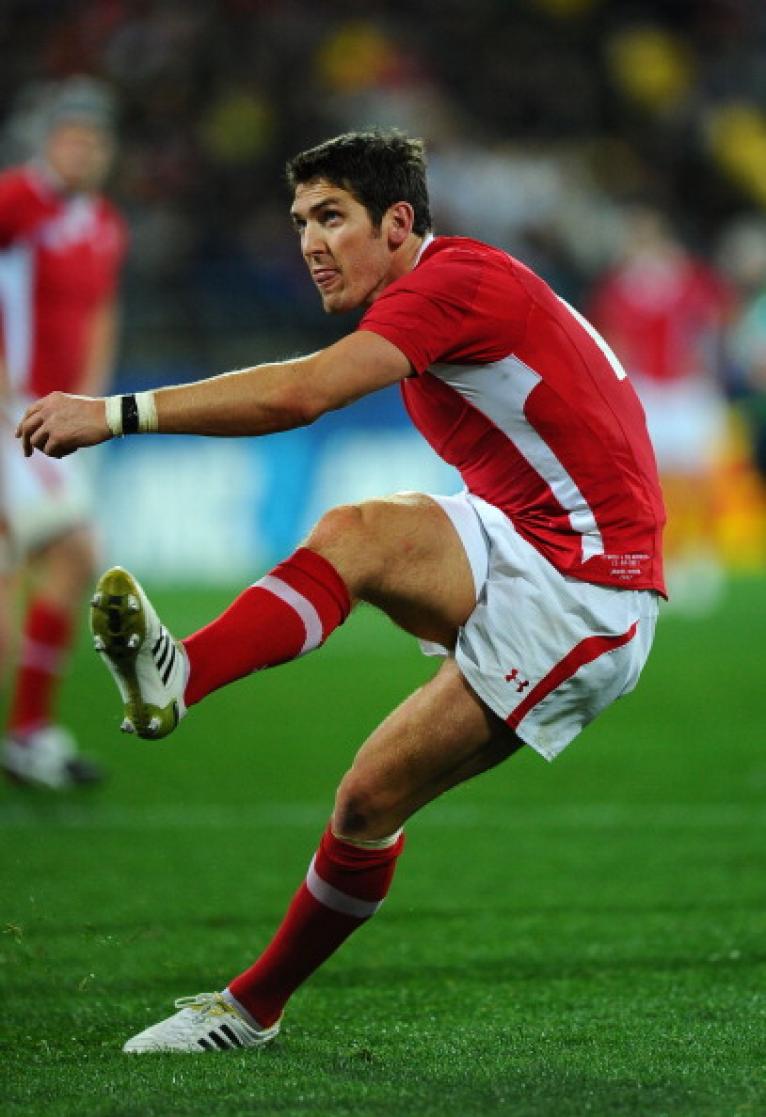
Wales had plenty of time to win the game after Hook’s 14th-minute penalty shot. But they lost 17-16.
Warburton, however, put down a marker.
Gatland had flagged up how highly he rated the Cardiff openside at one of the coach’s first press conferences in New Zealand, suggesting he was up there with three other world-class opensides at the tournament in David Pocock, Richie McCaw and Heinrich Brussow. “A lot of people haven’t seen a lot of Sam Warburton, but I think he will create an impact after a few games in this World Cup,” said the Kiwi.
Gatland wasn’t wrong. In his first outing, against the aforementioned Brussow, Warburton snaffled six turnovers.
Wow.
In fact, make that half-a-dozen ‘wows’.
Samoa, Wales’ nemesis at the 1991 World Cup, were next up, complete with their usual battery of hard runners and bone-shaking hitters.
But Gatland and his coaches had a plan.
This time, Wales wouldn’t just passively take the punishment, as some had accused them of doing 20 years earlier when they were well-nigh blasted off the park in Cardiff by Apollo Perelini, Pat Lam, Peter Fatialofa, France Bunce, Brian ‘The Chiropractor’ Lima and their pals.
They would do as the All Blacks have done so well down the years and attack the opposition’s strengths, with forwards coach Robin McBryde encouraging the Welsh players to ‘T-bone’ the men in blue – that is, run straight into them rather than around them.
“I don’t think Bradley Davies, as one of our ball-carriers, was too impressed,” laughs Adam Jones.
“But in hindsight you could see why that was the plan, because if you run straight at their chests, you take away their shoulders.
“They’d want an angle on you so they could explode at you with their shoulders in the tackle. But if you head straight at them, you are running at sternums, so they can’t put in those big shots.
“I remember Jamie Roberts setting the tone by running straight through Seilala Mapusua. He was a big player for them and to see him knocked back gave us a psychological boost. Then George [North} did what he does.”
He just kept on at me. ‘Go home, No14,’ he was shouting. ‘Get your mum to pick you up. We won’t think any the worse of you if you leave now. We’re scared of Alesana, too.’
Up against the formidable Alesana Tuilagi, then-19-year-old North was to recall how he had initially been barracked by a spectator in Hamilton. “All I could hear was this guy in the stand,” the wing stated. “He just kept on at me. ‘Go home, No 14,’ he was shouting. ‘Get your mum to pick you up. We won’t think any the worse of you if you leave now. We’re scared of Alesana, too.’” But boy George hit Tuilagi with a tackle that deposited him into touch. Thereafter, he didn’t hear much from the would-be town crier in row 2, block 3 of the stand at the Waikato Stadium.
But Hook didn’t have the same luck when attempting to deal with the aforementioned Tuilagi, injuring a shoulder while attempting a big shot. “It wasn’t my best decision and it put me out for the remaining group games,” he recalls.
Hook had been outstanding at fly-half in the warm-up match against Argentina but Wales played him at full-back in the opening two games. “It wasn’t until the Tuesday before our first game, against South Africa, that I was told by our attack coach Rob Howley that Wales were going to play me at 15.
“It threw me a bit, because I didn’t really have an inkling that I’d be there for that first Test.
“But, just like for most of my career, you get on with it.
“To be fair, Rhys Priestland had a fantastic tournament.”
No moaning and generous to others. It’s how Hook was as a player.
Wales had been tested by Samoa but survived. Subsequent wins over Namibia and Fiji set up a quarter-final against Ireland.
Wales defeated the Irish 22-10 with one of the finest performances of Gatland’s reign, with the back-row of Lydiate, Warburton and Faletau to the fore and Roberts, Davies, Shane Williams and Phillips outstanding behind the scrum.
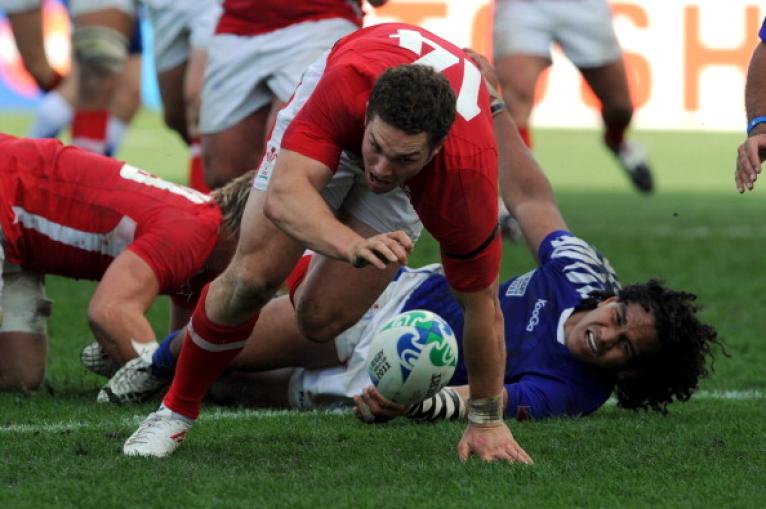
“We were playing a red-hot Ireland team who were heavily fancied over us,” recalls Edwards.
“I always remember Brian O’Driscoll saying it was the most disappointing game he’d lost. He is one of Ireland and world rugby’s all-time greats, so for him to say that shows how big it was. A lot of things came together on that day – our tactics, our fitness, our togetherness.”
It was indeed a tactical triumph for Gatland and Edwards. Wales nullified Ronan O’Gara’s kicking game by cleverly assigning touchline-covering duties to each of their back three; they achieved turnovers by chopping Irish ball-carriers to the floor; they countered O’Driscoll’s spot-blitz by telling the fly-half Rhys Priestland to play flat with the centres unusually deep.
“It was a very fulfilling match, a huge game because we’re obviously rivals and there was so much on the line,” says Edwards.
Lydiate made 24 tackles without missing one.
“He’s my favourite player,” Edwards said after the final whistle.
Wales were booked for a semi-final against France in Auckland.
On the eve of the last-four clash, Adam Jones found himself taking a call from a politician who had lodged his name in the public consciousness with appearances on the TV programme Have I Got News For You and gone on to become London mayor.
The tighthead had been heading out to the cinema when summoned back to his room to speak to one Boris Johnson, who had been keen for a chat after following Jones’ career. He hailed the frizzy-haired Welsh scrum anchor as “Cro-Magnon man”, a reference to the early humans who were renowned for their powerful frames and robustness.
It wasn’t a line everyone in the bar at Abercrave rugby club would have reached for first, but, still, Johnson is Johnson.
Boris Johnson rang again before the Lions tour a couple of years later and I met him in Downing Street as well.
“It was a bit surreal – me, a working-class boy from Abercrave who went to his local comprehensive school; him, a Tory politician who’d attended Eton and gone to Oxford,” says Jones.
“I can’t remember what my grandmother’s reaction was when I told her.
“She was the wife of a miner from the Upper Swansea Valley – far away from the upper reaches of the Conservative Party.”
But the class divide didn’t block the conversation. “He said he was a prop forward in school. He has a bit of a dodgy haircut as well, so that was mentioned, too,” says Jones.
“He rang again before the Lions tour a couple of years later and I met him in Downing Street as well. For sure, he was a different admirer to have.”
Jones hurried downstairs to tell his team-mates who he’d just been talking to.
It would be wrong to report there was a tidal wave of enthusiasm at the news that Boris Johnson had just been on the blower. One forward scrunched his face in confusion and said: “Who?”
The script then lurched badly for Wales, with two huge blows meted out by fate in the first quarter of their date with France. First, Jones, their scrummaging rock, went off injured, then – you may have read the odd word about it – Warburton was red-carded after a tip tackle on France wing Vincent Clerc.
Was referee Alain Rolland right to have dismissed Wales’ captain? “I thought it was a cracking tackle,” says Edwards. “Clerc didn’t land on his neck or anything like that. But I am not here to criticise World Rugby.”
Jones says: “I remember sitting on the bench, towel over my head, crying my eyes out. The biggest game I’d played before that was the second Test for the Lions in South Africa in 2009 and I’d gone off injured and we lost. Then, in a World Cup semi-final and I go and tear my calf four minutes in. I was devastated.
“All of a sudden, Sam was sitting next to me. I asked him what was going on. He said: ‘I’ve just been sent off.’ I thought he was kidding until he pointed to the pictures of his hit being replayed on the big screen.
“Sam was before his time in terms of being a powerful athlete, while Clerc is not the biggest fella.
“It probably was a red card the way the game is reffed now, but back then it wasn’t clear. It wasn’t as if Sam picked him up and slammed his head into the ground, so I don’t know. It’s a tough one. In fairness to Alain, he’s a good fella. I liked him. He spent an afternoon baby-sitting my daughter in one of the Hamilton hotels.”
Jones’ early exit was close to being just as damaging as Warburton’s, with the prop adept at winning scrum penalties for the team. “Adam’s loss early on was massive,” says Hook. “He was the cornerstone of our front row.”
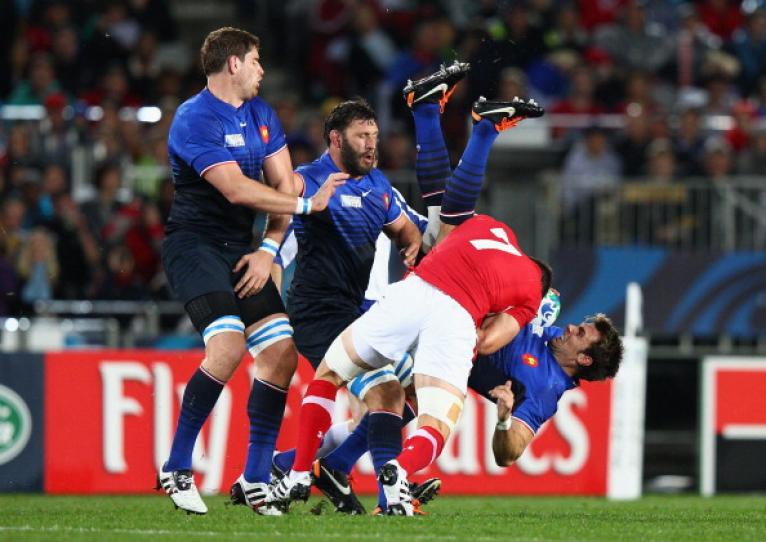
Wales showed extraordinary courage in adversity, with Faletau, Phillips and Roberts leading the way, but they fell to defeat at 9-8, with their usually reliable kickers having an off day.
No fingers were pointed at Warburton or anyone else, with Wales’ class of 2011 losing as a squad as well as winning as one.
Phillips was to reveal in his book, Half Truths, how he’d been so low after the McDonald’s contretemps that he didn’t care if he went to the World Cup or not. His relationship with his then-team the Ospreys had deteriorated and he and his girlfriend, the singer Duffy, had parted. The much-photographed dust-up outside a fast-food restaurant in the early hours didn’t help his state of mind one bit. A two-week Wales suspension over the incident was only the latest in a line of unhappy episodes at the time.
But Spikey Mikey had a superlative World Cup, starting in six of the seven games Wales played and reminding all of his quality. In particular, his try-scoring performances in the knockout games against Ireland and France were special.
“Mike was brilliant,” recalls Adam Jones.
“The competitiveness, the aggression, the game-winning ability, dare I say, the arrogance – he had it all.
“The circumstances of the semi-final against France were right up Michael’s street: ‘Down to 14 men? Right, f**k you, I’ll take you all on.’
“And he did.
“When he was on form, he was unplayable.
“He was probably at his peak around that time. There were some good scrum-halves at that World Cup, but as Brian Clough might have said, Mike was in the top one.”
Jones continues: “A lot of people ask me what he’s like as a bloke.
“He’s class and I think the world of him. We came through at the same time – him with Llanelli, me with Neath. We played in the under-21s together and then in the Wales squad, so we go back a long way.
“I was lucky enough to do a bit with him for the TV company S4C a couple of months ago and it was great to spend time with him.
“He’s just a fantastic bloke.”
It would have looked silly if we’d had an open-top bus parade after finishing fourth at a World Cup.
Phillips rediscovered his mojo off the field as well in 2011.
At one point, Bradley Davies, then feted as Welsh rugby’s Archbishop of Banterbury, was giving him some stick about the scrum-half being voted ‘the World Cup’s top hunk’ by a newspaper that had informed its readers: “Known as the Welsh Becks after dating singer Duffy, he is the man most of the New Zealand Woman’s Weekly staff would like to have sing them to sleep.”
Davies could not resist the temptation to tease Phillips, perhaps even asking him what lullaby he would choose to induce sweet dreams.
Back came Phillips. With bells on.
“He said I was captain of the Ugly XV,” laughed Davies in a wonderfully self-deprecating interview during the tournament.
One-nil to Phillips? He thought so.
Wales lost their bronze-medal match to Australia but had emerged from the tournament heavily in credit, prompting talk of an open-top bus parade for the squad.
But that’s as far as it went.
“It was met by a flat ‘no’ from the players,” says Adam Jones.
“We won the Grand Slam the following year and the championship the year after, so we were a good team, but it would have looked silly if we’d had an open-top bus parade after finishing fourth at a World Cup.”
Warburton was to subsequently share a plane journey with Clerc, with no enmities at 30,000ft reported.
In Wales, the skipper was celebrated for his efforts. Dining out one evening after his return, he found himself the focus for much attention. “I was asked for three autographs before I even had a starter,” he said.
The Welsh public knew how much the skipper had given.
Roberts and North wound down their time in New Zealand by bungee jumping off the 328-metre Sky Tower, falling for 11 seconds while attached to a 192-metre wire that plunged 53 floors down at 85 kilometres per hour.
Don’t read too much into that episode, though.
Wales had gone up in the world over the previous seven weeks.
Theirs was a tournament to remember.



Comments
Join free and tell us what you really think!
Sign up for free